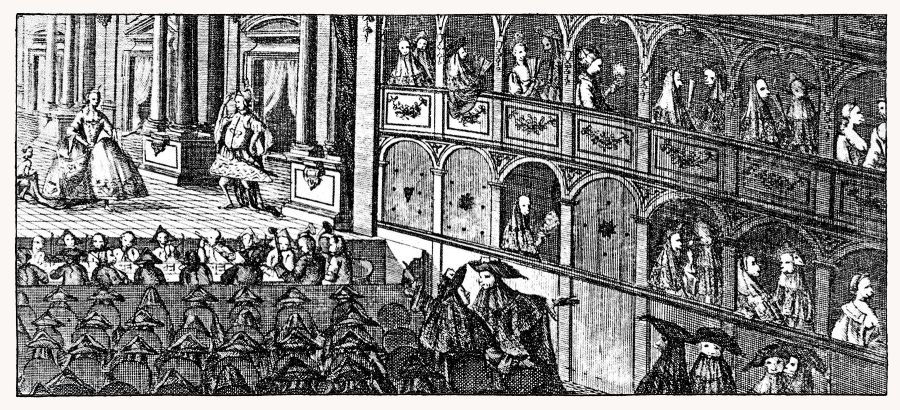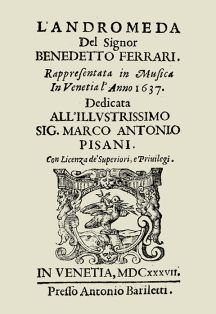


Theater, although in locations not available to everyone - noble houses, churches - was born in Venice in 1542.
The basic idea was educational, to show how life was in the past - no TV or Wikipedia back then - what were the "good things" to do, and to counteract what were considered the immoral shows of the Commedia dell'Arte that were so widespread and successful at the time.
The desired result was not fully achieved, of course, and the theater idea was rapidly corrupted by the Commedia dell’Arte, who introduced the Pantalone mask.
Anyhow, theater going became one of those customary "not too dangerous" pastimes during Carnival, still safer than playing cards at the Ridotto and losing the family fortune.
In the XVII century there were already 14 theatres in Venice, private or public owned.
In these theaters were performed any kind of play: in October the first plays were performed and in November it was time of rehearsals for music shows.

The first real theater open to the general public in Venice was the San Cassiano Theater, with debut on the day of S.Stefano, beginning of Carnival, 1637.
San Cassiano Theater was made for Opera shows, but it was probably open to any kind of program, as long as it could give some financial return.
The spectator's behavior inside the theater wasn't exactly classy:
This is a commentary from one of the humorists book writers of the time (Satire del Cavalier Bartolomeo Dotti - Satira sesta):
"Siavi pur chi s'affatichi,
A trovar chiavi di Palco,
Quanto i Chimici mendichi,
A stillar oglio di talco:
Io sto a basso, e a sputi tondi,
Come i bolli del Plateo,
Ho i miei drappi lordi, e immondi,
Più di quei dell'Arcoleo."
"It is quite tiring,
To get a key for a box,
As for the poor Chemists,
Was to distil oil from talcum:
I stay in a box at the bottom, and round spits
Are coming, looking like the cachets of Plateo,
My clothes are dirty, and filthy,
More than those of a certain Arcoleo*."
* Antonio Arcoleo was an Opera composer,
his most known work was "La Rosaura" and possibly in a situation was received with spits from the public.